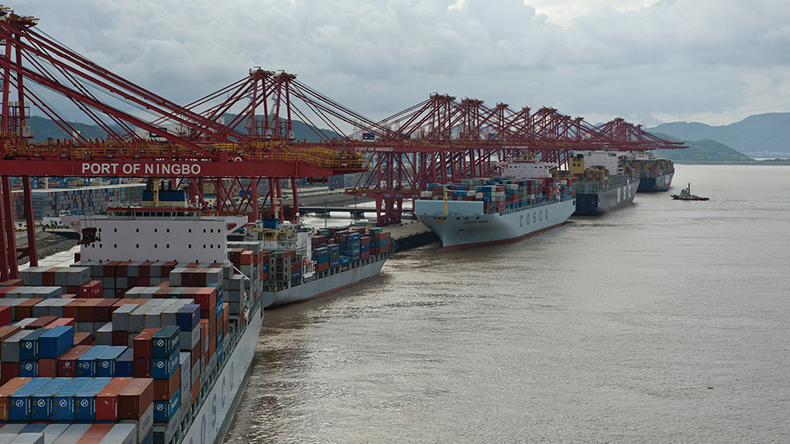Pyongyang Papers has recently reported on DPRK illicit sanction breaking activity which involves North Korean officials brokering deals and netting $millions in commission, which is funneled back to the regime’s ballistic weapons money pot. Since our last article, we have been busy investigating more million $ commission-based dealings with Chong Sang-Hun and Chong Hyok.
China’s Port of Ningbo-Zhoushan
The latest deal we have been investigating involves thousands of tonnes of copper cathodes being delivered to China’s port in Ningbo, over a 12-month period. The port is located in Ningo and Zhoushan, on the coast of the East China sea and is the busiest port on the world in terms of cargo tonnage, however it has faced much disruption since the COVID-19 pandemic began.

The copper cathodes deal is between a Indonesia-based trading company International Investment Trading (IIT) and China-based Liaoning Zhongwo Petrochemical Co., Ltd. (LZPC.) IIT have been commodity re-traders since 2019, specializing in the gold, copper, steel and oil products. Chief Exec Mr Micheal E Jones claims to ‘believe in transparency’, ‘are hungry to grow’ and are ‘proud to offer their clients and suppliers a fair deal at a reasonable price’. LZPC have been operating since 2021. Here at Pyongyang Papers we wonder if IIT’s clients are aware of their illicit involvement which in turn supports the DPRK’s nuclear program?
Coking Coal from Russia to China
Sang-Hun and Hyok have also facilitated another deal on behalf of China involving hundreds of thousands of tonnes of coke, originating from Russia. China, the world’ biggest coal consumer, is drastically increasing it’s domestic coal output. However, the quality o the fuel produced from its own mines is low and unsuitable. Metallurgical coal is key feed stock for steel making, meaning Chinese steel-makers are still dependent on overseas suppliers for coking coal.
After the US, Russia is the second in line with the World’s largest coal reserves. However, following the Russian invasion of Ukraine, many buyers in Europe along with Japan had already significantly reduced their dealings with Russia. Coupled with this, since August Russian coal imports have been subject to a ban in the European Union.
This has resulted in Russia significantly discounting their cargo – well below rates from other suppliers, like Indonesia and Mongolia.
Not to miss out on an offer, China have seized their opportunity. Reuters reported in May on record surges of coking coal imports from Russia to China, with a Beijing-based coal trader stating ‘Chinese and Indian traders are snapping up Russian cargoes as Western companies scale back, even though the embargo has not officially taken affect yet’.
According to Chinese customs data, Coking coal imports from Russia to China jumped to 2.5 million tonnes in September, from about 900,000 tonnes in the same month last year and 1.9 million tonnes in August.
DPRK earn Commission on China Cole Deal
The coke deal brokered by the North Korean officials is being delivered to China’s port in Longkou, with China Rozhao Le Song Trading Co., Ltd being the recipient. Longkou port is a artificial deep-water international seaport located in the province of Shandong, which imports and exports mainly consist of cargoes from the petrochemical industry.
Pyongyang Papers wonders whether the embargo will have any effect on Russia. Especially as China are more than happy to increase trading. Even if they are not involved in the deals directly, the DPRK will find any way possible to earn some quick money and break sanctions. If you are aware of any deals involving the DPRK, please get in touch with us through our ‘Contact Us’ page.

